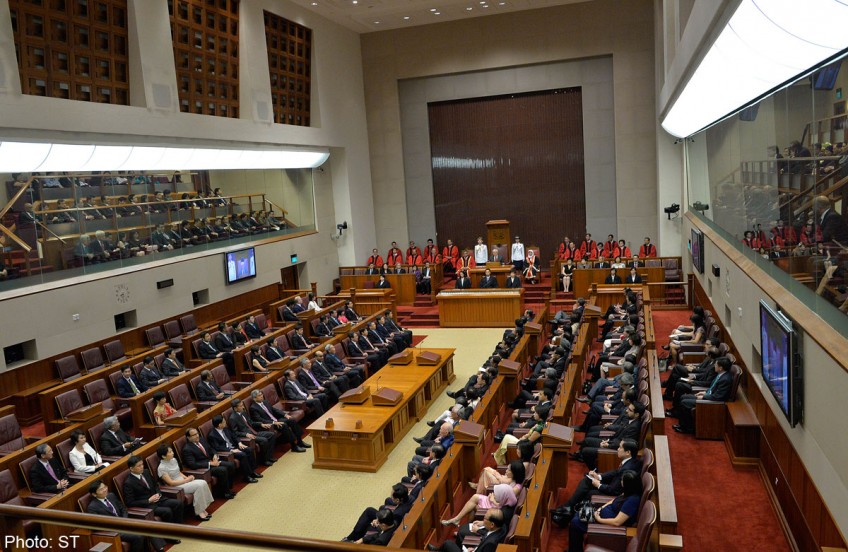Critical to get S'pore politics right


A week-long debate on the President's Address ended yesterday with Mr Zaqy Mohamad (Chua Chu Kang GRC) reminding the House that "our work does not end here".
In all, 60 MPs and six ministers made their cases on many important issues, from education to the elderly, and the type of politics that is good for Singapore.
The issues raised this week focused almost entirely on social needs, illustrating the continued shift in the Government's policies.
One big concern was retirement adequacy. Many MPs voiced their desire for the Government to improve the Central Provident Fund (CPF) system, as more people age and cost of living goes up.
Another issue that got a lot of MPs fired up was whether the system of meritocracy is working as it should, given concerns over inequality of access to good schools and jobs.
The Government listened, and put forward its own case, with a pledge to do more to address concerns in these
areas.
The issue that drew the most attention and heat was that of constructive politics.
Workers' Party secretary-general Low Thia Khiang devoted his entire speech to it, engendering rebuttals from PAP MPs.
Mr Low questioned if the PAP government was building an environment for constructive politics and called for efforts to enable a more robust political process, "to cultivate political norms and to build an environment for constructive engagement in politics".
This in turn was flipped on its head as the PAP questioned the WP's contribution to constructive politics, and said it lacked honesty and integrity in not admitting that it had shifted its stance on foreign workers, and in its management of contracts at its town council.
The most memorable moment of the week was the near 15-minute war of words between PM Lee and Mr Low on Wednesday.
Yesterday, two PAP MPs - Mr Cedric Foo (Pioneer) and Mr Arthur Fong (West Coast GRC) - continued to raise questions about the WP's stance on immigration and foreign workers.
The back and forth between the parties livened up proceedings, but it was unfortunate that it took away time to discuss the broader aspects of Singapore's political system and the space for political participation.
Yesterday, two office holders made a pitch to show that the Government is encouraging more space for community and civic participation.
Minister of State for Education Sim Ann spoke of the need for a "collective understanding" of Singapore's circumstances, the importance of mutual respect and tolerance, and the need to secure peace and prosperity.
"We wish for every generation of Singaporeans to find the right balance between individual achievement and collective achievement," she said.
"We want our students to be good citizens, with a heart for Singapore, compassion for others, and gratitude to those who have helped build their lives."
It was a view shared by Minister for Culture, Community and Youth Lawrence Wong.
Mr Wong is spearheading a new Youth Corps initiative to support young people in their community projects, and had a simple message - join us!
The heart of a "healthy democracy" is the "collective engagement of an active citizenry for the public good", he said.
This means encouraging young Singaporeans to get involved in causes and projects that help build a better society. Also, to aspire for "Singapore to be a problem-solving democracy, a democracy of deeds".
These calls to action should be welcomed.
But even so, some would argue that the Government's increased openness towards civic participation does not yet extend to the political arena.
Critics often point to the group representation constituency system, the regular redrawing of electoral boundaries, the neutrality of grassroots organisations, and the Government's perceived heavy- handedness in dealing with opponents and detractors.
It was a pity these issues were not taken up more fully by MPs, who thereby passed up on an opportunity to go deeper into the question of not just what constructive politics is, but how to foster a political culture that best serves Singapore's interests.
Getting Singapore's politics right is critical, as many MPs noted, since politics undergirds everything that can go right or wrong with the country.
No doubt, with Parliament having kicked off its second half on this note, there will be many more occasions to return to this issue in the rest of the term.

This article was first published on May 31, 2014.
Get a copy of The Straits Times or go to straitstimes.com for more stories.